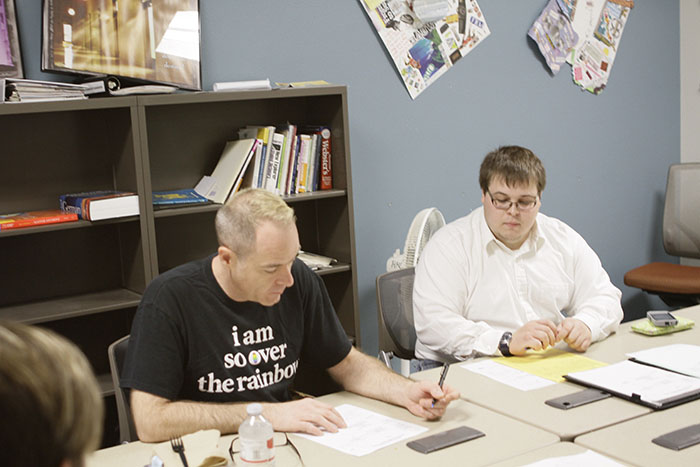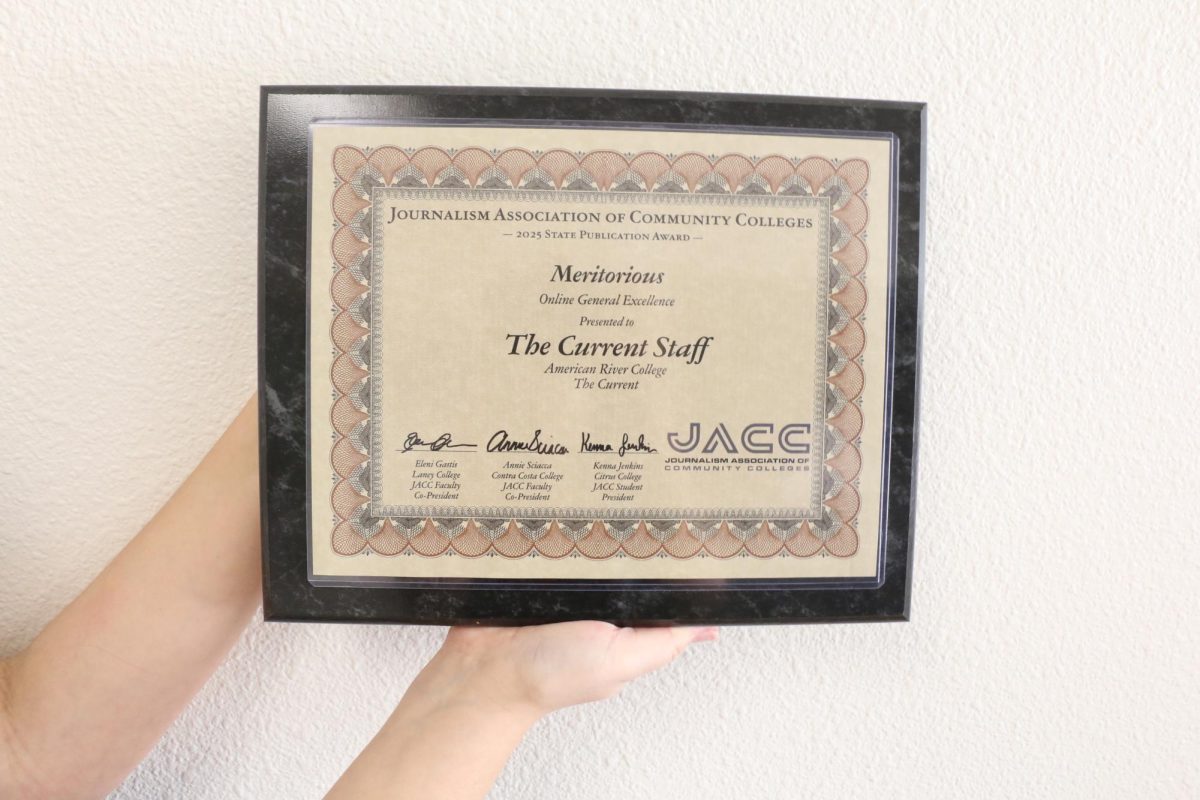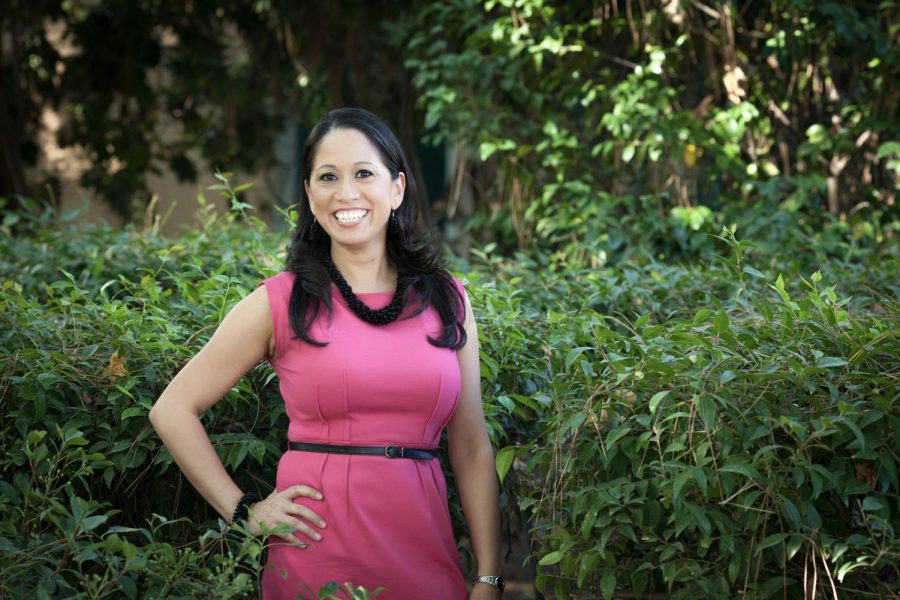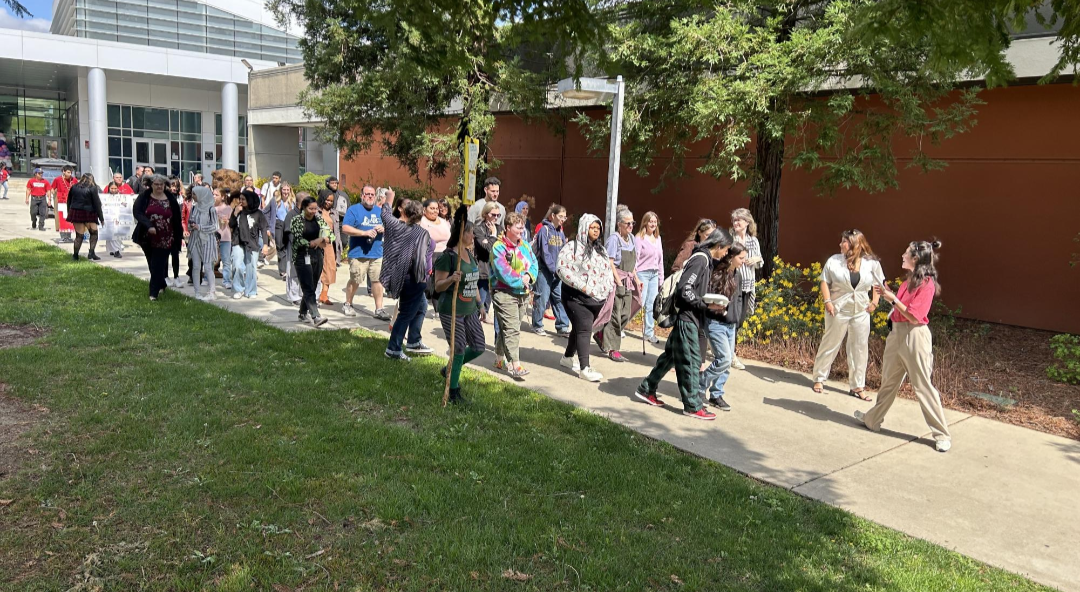A gay American River College student was turned away from a recent blood drive on campus while attempting to donate blood due to a policy regarding his sexual contact with another man rendering him ineligible.
The federal Food and Drug Administration’s policy, which states that any man who has had sex with another man after 1977 even once receives a lifelong ban from donating blood, has been in place since 1983, and was introduced as a way to prevent patients who received blood transfusions from contracting HIV or AIDS.
The president of the LGBT campus organization Fierce, Brett Spencer, said that the FDA’s rules are outdated.
“I believe it needs to be changed,” Spencer said. “It’s based on outdated research and information, and … based on a lot of incorrect social beliefs.”
“The scientific community has effectively supported that HIV and AIDS is not a gay disease, that it’s a disease that affects everybody, and it makes no sense for them to set a screening process up for one group of people and a different screening process up for another,” Spencer said.
Blood screening technology used by the FDA has advanced in the last 30 years since the ban was first instituted.
According to the FDA, the main reason for the ban is to “assure the safety of patients who receive these life-saving products.”
Advances such as nucleic acid testing, which is used to detect the presence of viral infection by directly testing for viral nucleic acids, has caused the risk of transfusion-transmitted infection to decrease substantially, according to Medical Laboratory Observer.
Despite these advances, the FDA’s policy has remained unchanged since 1992. Spencer says he believes the fact that the ban is still in place is because of outdated scientific information.
“Initially, when HIV and AIDS became a pandemic, it was socially perceived … to be a gay disease and very little was known by the scientific community, so its understandable to a point why the bans are put in place based on research back in the early ’80s,” said Spencer. “But that research was based on what little we knew. Since then, a lot of information has been gained on the disease, and the screening process has changed tremendously. The technology, all of it has changed and we now understand that this is not a gay disease, it is a human disease.”
Fierce treasurer Kenneth Hinton also believes the ban has become outdated.
“In the ’80s, we didn’t have the technology that we have now. I mean, computers still were something that weren’t as flat or as small as they are now,” Hinton said. “We can manipulate an HIV virus to try to help eat away cancer cells now, we can grow stem cells. So I just think that this whole thing needs to be changed … the technology has changed, so should the policy. They’ve had 20 years to analyze research on HIV and AIDS, they need to start changing this policy.”
The FDA has stated that they would be change their policy if new scientific data were released that showed a change in policy would not become a risk to blood recipients, and that they would be willing to consider new approaches to donor screening and testing.
While the FDA maintains its ban on men who have had sexual contact with other men giving blood, it does not ban heterosexual men who have had multiple sexual partners from giving blood.
According to data from the Centers for Disease Control and Prevention, men who have sex with other men are at a higher risk for transmitting infectious diseases or HIV than individuals in other risk categories.
However, neither Hinton or Spencer believe the FDA’s ban is intended to be discriminatory towards gay men.
“I don’t think it’s a way to oppress us, I think its a way to try to keep our blood source safe. They have had a lot of time to analyze it and realize that it’s not a gay disease, but its not a way to oppress us if we’re easily able to get around that,” said Hinton.
“I don’t think that (the ban is) overtly being used to assert prejudice on the queer community. I still think that there are social attitudes out there that are lingering … but no, I don’t think that anyone’s intentionally (trying) to continue that oppression against people who have sex with the same gender,” said Spencer.
In June of 2010, the FDA voted to uphold the ban on gay men who have had sexual contact with another man donating blood.
For the original story on a gay ARC student who was turned away from a blood drive on campus, go to https://www.arcurrent.com/news/2014/10/16/arc-blood-drive-turns-away-gay-student/.














